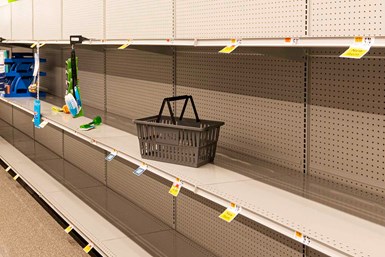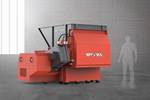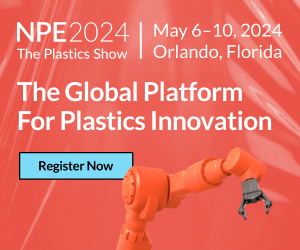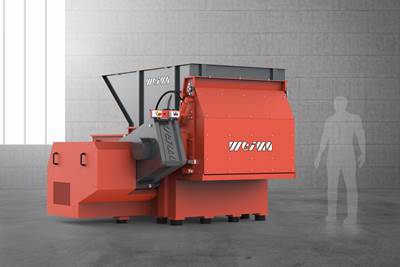Waking Up to a World Without Manufacturing
The world now knows what those of us in the manufacturing sector have known all along: the incredible importance of U.S. manufacturing to the overall economy.

Photo Credit: Getty Images
The pandemic has been so hard on so many. Lives lost and life plans, classrooms and places of business completely upended, an unprecedented mental health crisis, a global supply chain in chaos, and the list goes on. As devastating as the last two-plus years have been, the period has not been without its silver linings.
One of them is that the rest of the world now knows what those of us in the manufacturing sector have known all along: the incredible importance of U.S. manufacturing to the overall economy. When consumers can get what they want, when they want it at a price that seems reasonable it’s quite easy for them to take manufacturing for granted. When their ability to do so is restrained by a dysfunctional supply chain, suddenly they begin to realize the incredible difference that manufacturing and a well-oiled supply chain make in their lives.
Imagine waking one morning to an economy without U.S. manufacturing: $2.4 trillion in annual gross domestic product vanished without a trace and, along with it, more than 12 million careers in the manufacturing sector. Those 12 million careers that, by recent numbers, paid more than $83,000 per year on average — more that 57% higher than the annual compensation provided by the average non-farm business job.
But the impact of U.S. manufacturing doesn’t begin and end with the economic impact on business owners and their employees. Manufacturing companies are not just producers — they are consumers. They insure their businesses and employees, helping to fuel an entire property, casualty, health and workers’ compensation. Individual manufacturers purchase manufacturing equipment and subcontract manufacturing services, supporting even more manufacturing economic impact. Manufacturers purchase natural gas, electricity, city steam and other forms of energy, contributing to jobs and opportunities in these sectors. Manufacturers procure materials, including metals, chemicals, textiles and plastics, and acquire vehicles, trucks and forklifts to transport them.
Manufacturers engage attorneys, accountants and consultants to support their businesses. They invest in software to manage their finances, operate their plants and maintain relationships with customers. They build buildings, pave their parking lots, maintain their properties. And they pay taxes and fees. A lot of them — federal income taxes, state income taxes, employment taxes, infrastructure assessments, permitting fees and the list goes on.
On the day we wake up to no manufacturing, all of these so-called backward linkages disappear. And so do the forward linkages, because the 12 million people earning their $83,000 plus in average annual income don’t keep all of that money, they spend it.
They purchase or build their homes and rent their apartments and then heat them, cool them, maintain them and improve them. They invest in vehicles. They travel, consume entertainment, purchase groceries and dine out. They shop to their heart’s content — online, in shopping malls and at the corner drug store. They pay interest on mortgages, buy insurance and utilize mobile phone, WiFi and streaming services. Birthday presents, car repairs, haircuts. And they pay taxes along with sewer, water and trash fees.
Who even knows the impact outside of manufacturing for every job in manufacturing? The National Association of Manufacturers says it does — an economic impact of $2.68 for every $1 spent in manufacturing.
Setting aside for the moment the economic impact of manufacturing, manufactured products are fundamental to our very way of life. The building materials that comprise our homes and the furniture, technology, appliances, devices and fixtures inside them — none exist without manufacturing. Nor do our vehicles, tools or offices. Virtually everything humanity holds or uses owes its existence to our sector.
Waking up to a world with no manufacturing quickly becomes a nightmare — economically and to our entire lives. Those of us in manufacturing have long understood this truth. Due to supply chain disruption, our nonmanufacturing friends and neighbors are beginning to understand it as well.
Moreover, this disruption accentuates the need to move manufacturing closer and closer to the point of consumption. Really good news for U.S. manufacturing.
May this opportunity not be lost! Let us never again take U.S. manufacturing for granted, but instead advocate for it, invest in it, and train and create a new generation of U.S. manufacturing talent.
ABOUT THE AUTHOR: Matt Kirchner is an international speaker, author, and podcast host on topics of interest to educators, public policymakers, and private employers. Kirchner hosts the weekly TechEd PodcastTM, featuring leaders in industry and education, and serves as President of ATS/LAB Midwest, the leading distributor of world-class curriculum, eLearning, and training equipment. Previously, Kirchner led three world-class manufacturing companies during a 20+ career as an industrial CEO. He and his partners sold their last company, American Finishing Resources, to DuBois Chemicals in 2014. Kirchner serves on the boards of directors of several American companies, is First-Past President of the Education Dealers Association, and holds a seat on the board of the Smart Automation Certification Alliance. He is a graduate of the Marquette University School of Business.
Read Next
Lead the Conversation, Change the Conversation
Coverage of single-use plastics can be both misleading and demoralizing. Here are 10 tips for changing the perception of the plastics industry at your company and in your community.
Read MoreMaking the Circular Economy a Reality
Driven by brand owner demands and new worldwide legislation, the entire supply chain is working toward the shift to circularity, with some evidence the circular economy has already begun.
Read MoreRecycling Partners Collaborate to Eliminate Production Scrap Waste at NPE2024
A collaboration between show organizer PLASTICS, recycler CPR and size reduction experts WEIMA and Conair will seek to recover and recycle 100% of the parts produced at the show.
Read More







 (2).jpg;maxWidth=300;quality=90)














